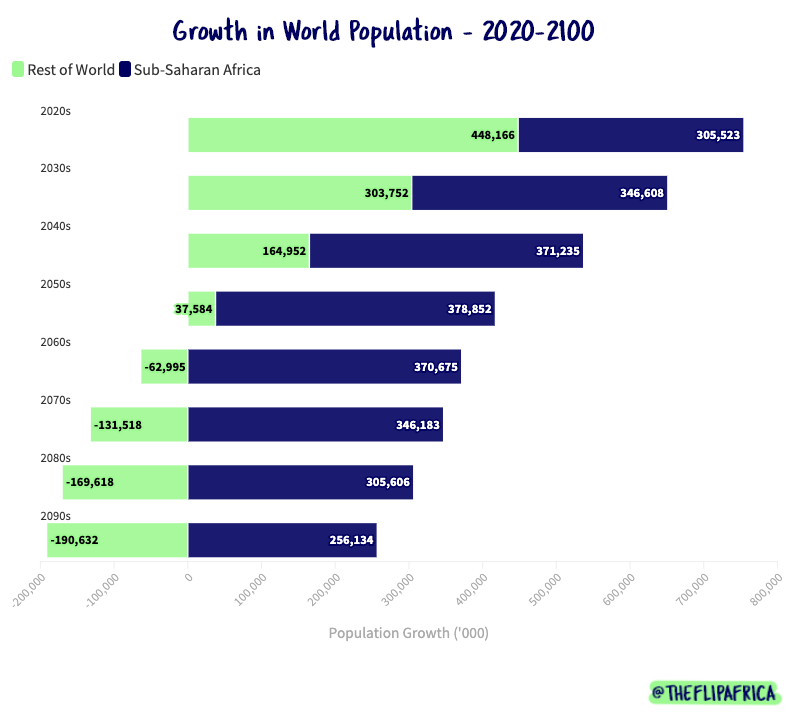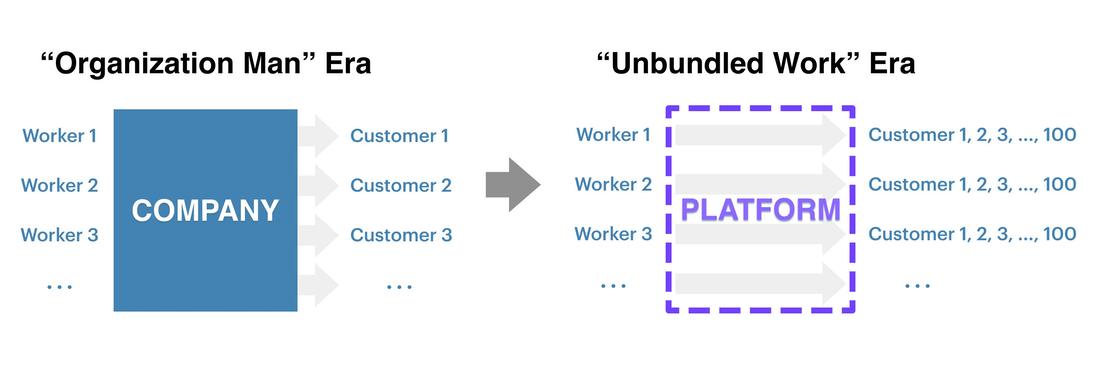In addition to sharing interesting content in the Jobtech Alliance newsletter, we will share particularly relevant content as cross-posts. Here, we introduce Justin Norman from The Flip’s excellent recent article on the Future of Work in Africa. You’ll find the article summarized in 4 bullets below, but we’d really recommend that you read the full article here.
1. Africa has a rapidly increasing population
‘Where are all the jobs going to come from?’ asks Norman.

2. If we look globally, there’s been an ‘unbundling of employment’
People in Western markets as well as African markets these days navigate a portfolio of different income streams. As Normal explains: “As the west experiences this unbundling of work, in which everything becomes more fragmented and decentralized, I can’t help compare to African markets – which are already fragmented and decentralized. The future of work in the US might look a lot like… how work in African markets looks today!”

3. Technology globally is playing a critical role in this ‘unbundled employment’, but critical infrastructure for this new world of work doesn’t exist
People have been combining multiple income streams from different platforms, both through accessing work through ‘Uber-for-X’ platforms, but also an increasing through utilization of suite of SAAS (software as a service) platforms which enable anyone to become an entrepreneur, representing ‘the enterprization of consumer’.

But while new services and tools are being developed for this type of worker, Norman explains that, “there are also problems – the most glaring being that the traditional financial infrastructure was not set up to service this type of worker.”
4. Web3 will play a critical role in building solutions, and ‘X-to-earn’ could be particularly meaningful in Africa
As Norman explains, Web3 and emerging blockchain-based technologies will play a critical role in this unbundled form of employment: “Much of the aforementioned unbundling of work, in the global context, is made possible and/or further accelerated by Web3. The infrastructure is enabling and accelerating decentralization and fragmentation. Smart contracts – enforced by code, rather than intermediaries – enable trust and coordination previously not possible with traditional organizations. And the open, permissionless nature of public blockchains and smart contracts as a coordination mechanism means that, theoretically, anyone, anywhere in the world can participate.”
In particular, Web3 offers new potential forms of work around different ‘X-to-earn’ models, including:
- Play-to-earn games like Axie Infinity (which the Jobtech Allance has covered here)
- Participate-to-earn across a variety of DAOs (where a contributor’s work is viewable on chain)
- Create-to-earn models like NFTs, in which anyone can participate and earn in a global market
- Learn-to-earn models funded by e.g., DeFi protocols that recognize education is a crucial part of consumer adoption
There are definitely big questions about this future, and problems with some of the solutions that already exist, but there is huge potential for these forms of work specifically for young Africans. As Norman says, “For the sake of this discussion, the particulars are less important than the notion that these new models require a new skill set (which is precisely why learn-to-earn models exist in the first place, by the way); a skillset that those in the Global South can benefit as much if not more from having as their counterparts in more developed countries.”
Again, we’d recommend you read the full article here.

0 Comments